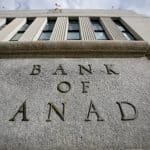OTTAWA — Canada’s housing market is slowing, but the Canadian Real Estate Association still sees no signs of a strong correction that would disrupt the economy or crash real estate values.

In a new forecast released Monday, the national organization of real estate agencies predicted that sales volumes would continue to grow this year to 463,700 units — a 1.3 per cent gain — over 2013, although that is below the association’s projection in December.
The association notes 2014 got off to a slow start this year despite sales of existing homes rising 0.3 per cent in February compared with January and up 1.9 per cent from a year ago.
The modest February increase followed five monthly declines that left activity 9.3 per cent below the peak reached in August 2013.
But all the talk of a coming crash is off base, said Gregory Klump, the association’s chief economist.
Klump said he expects sales to pick up in the spring, with moderately rising mortgage rates to “pinch” affordability in the second half of 2014, although the higher rates will likely come in conjunction with a stronger economy.
“Marginally higher mortgage rates are likely to counterbalance the lift provided by stronger economic and continuing job growth and restrain the momentum of sales activity,” he explained.
The net result, according to the association, is a slowing but still growing housing market, with average home prices continuing to track north, although at a more leisurely pace. It predicts the average Canadian home price will rise by 3.8 per cent to $397,000 in 2014 and another 1.1 per cent to $401,400 in 2015.
CIBC deputy chief economist Benjamin Tal, who follows the real estate sector closely, said he is not as optimistic as the real estate association about the direction of the market, but agrees there are no strong indicators of a housing correction — which some analysts have said could plunge prices by 20 to 30 per cent price over the next few years.
“I think the spring, although it will be OK, won’t be a strong spring … in fact it will be the weakest spring in a while,” he said.
“But not a crashing number,” he added. “There is no trigger for a sudden crash. We need something big to happen for this market to derail, we would need a huge interest rate increase (or) you need some kind of recession.”
Tal said the best-case scenario is for an orderly slowing of the market, something he believes is happening.
Klump cautioned that housing is a localized sector, so some of the national numbers may not reflect what is happening in individual municipalities and regions.
For instance, average prices of homes sold in February are up 10.1 per cent from a year ago, but some of that reflects heavy activity in some of the country’s hottest and most expensive markets.
Bank of Montreal economist Robert Kavcic noted that the median city price increase was only three per cent over last February, meaning half of Canadian cities are seeing average prices increase by less than that amount.
Vancouver, Toronto, Edmonton and Calgary saw year-over-year resale prices gain 11.3, 8.3, 7.7 and 4.9 respectively from last February. Meanwhile, prices in Regina fell 3.2 per cent and were down 2.2 per cent in Winnipeg, while Ottawa and Montreal had moderate gains of 1.8 and 0.4 per cent respectively.
Prices in Halifax were up 8.7 per cent, but the market overall was soft with sales down 15.6 per cent and the year-to-date price increase only 0.4 per cent.
“National price momentum has picked up, but gains have not been widespread across markets and that should provide some solace to policy-makers,” said Kavcic.
The association sees resales trending higher this spring, riding the wave of slightly lower mortgage and qualifying rates and in part due to catch-up for the unusually cold winter, which might have depressed sales.
Expected higher mortgage rates in the second half of 2014 are likely to have a bigger impact in less affordable housing markets, it added.
The Canadian Press












